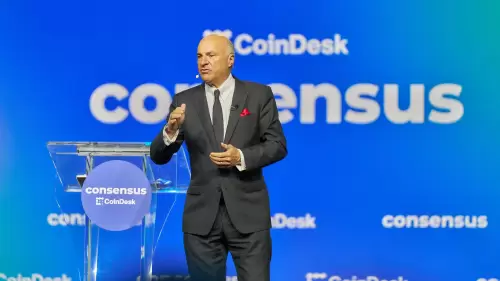 |
|
 |
|
 |
|
 |
|
 |
|
 |
|
 |
|
 |
|
 |
|
 |
|
 |
|
 |
|
 |
|
 |
|
 |
|
Cryptocurrency News Articles
Dubai's Cashless Conquest: How Know-How Fuels the Future
Jul 07, 2025 at 07:50 pm
Dubai is aiming to be a top-five cashless city by 2033, using CBDCs and tech like tokenization to drive transparency and efficiency.

Dubai's Cashless Conquest: How Know-How Fuels the Future
Dubai is making big moves towards a cashless future, aiming for a top-five global ranking by 2033. The secret weapon? A combination of strategic vision and cutting-edge know-how.
Dubai's Bold Vision: A Cashless City by 2033
Dubai isn't just dreaming of a cashless society; they're actively building it. The goal is to unlock over $2 billion in economic value by mandating digital payment acceptance across all businesses. This ambition positions Dubai at the forefront of a global shift toward digital economies, where cashless transactions are celebrated for their speed, security, and transparency.
CBDCs: The Transparent Game-Changer
Central Bank Digital Currencies (CBDCs) are playing a starring role in Dubai's transformation. These aren't just digital versions of existing currencies; they're powerful tools for transparency and control in public finance. The key is their programmability, allowing for real-time tracking of transactions.
Marking Funds: Unprecedented Oversight
CBDCs enable the "marking" of funds, giving governments and institutions the ability to specify how and where money is used. This makes it incredibly difficult to misuse funds or divert them for unintended purposes, offering unparalleled oversight and accountability.
Token-Based Architecture: Simplifying Fund Management
Many CBDC systems use a token model, where each unit of currency is a programmable token with built-in rules. These rules can include expiration dates, spending categories, and recipient restrictions. This is particularly useful for managing complex government contracts.
Real-World Applications: Proof in Practice
The most compelling applications of marked CBDCs are found in government-business-citizen interactions. Pilot programs, like the one in Kazakhstan using Digital Tenge for the Dostyk-Moyinty railway project, demonstrate the potential for improved tax collection and refund processes. Firms like Axellect are instrumental in these implementations.
Middle East Momentum: A Regional Embrace
Dubai isn't alone in its digital currency ambitions. Nearly two-thirds of countries in the Middle East and Central Asia are exploring CBDCs. Nations like Saudi Arabia, Bahrain, and the UAE are actively piloting digital currencies in public finance and commerce. This regional momentum suggests a broader shift towards digital economies.
Innovation with Guardrails: A Balanced Approach
CBDCs have the potential to revolutionize government finance, but proper regulatory, legal, and social frameworks are crucial. Transparent communication and robust governance will be essential for building public trust and ensuring widespread adoption. As Dubai pioneers this cashless future, its experiences could serve as a blueprint for digital transformation worldwide.
So, there you have it! Dubai's not just building skyscrapers; they're building a whole new financial landscape. Keep your eyes peeled – the future of money is unfolding, and it's looking pretty digital (and transparent) indeed!
Disclaimer:info@kdj.com
The information provided is not trading advice. kdj.com does not assume any responsibility for any investments made based on the information provided in this article. Cryptocurrencies are highly volatile and it is highly recommended that you invest with caution after thorough research!
If you believe that the content used on this website infringes your copyright, please contact us immediately (info@kdj.com) and we will delete it promptly.






























































